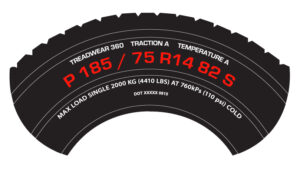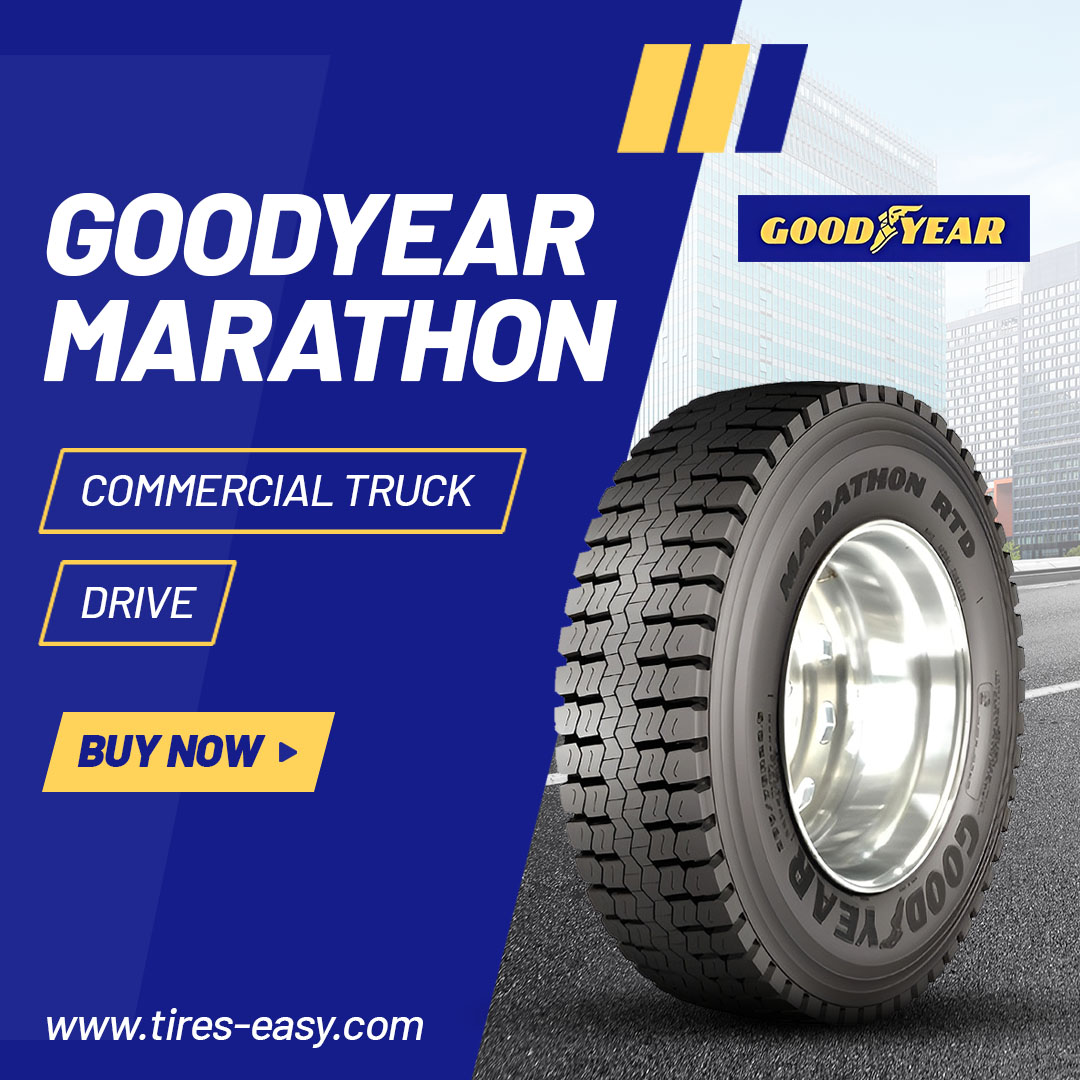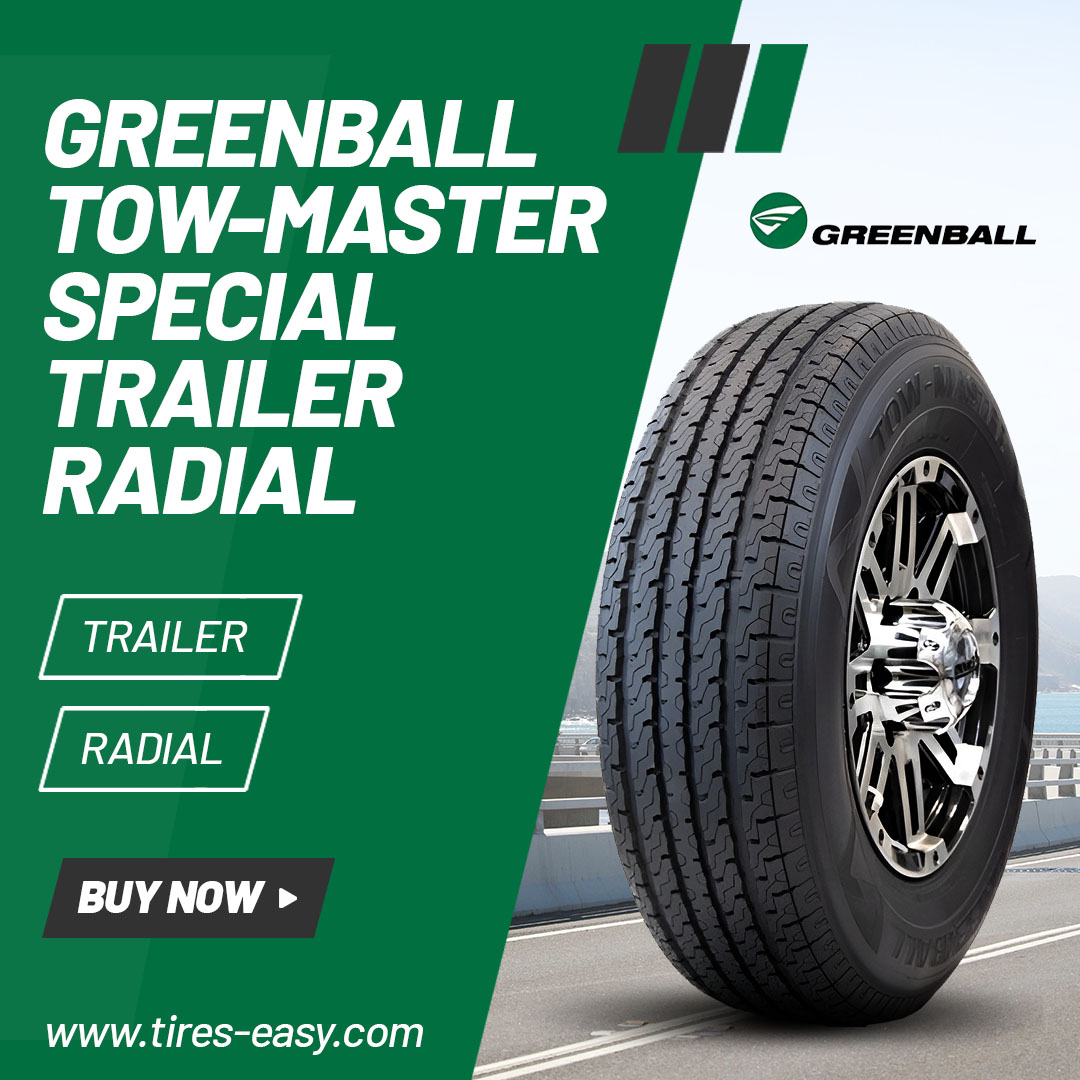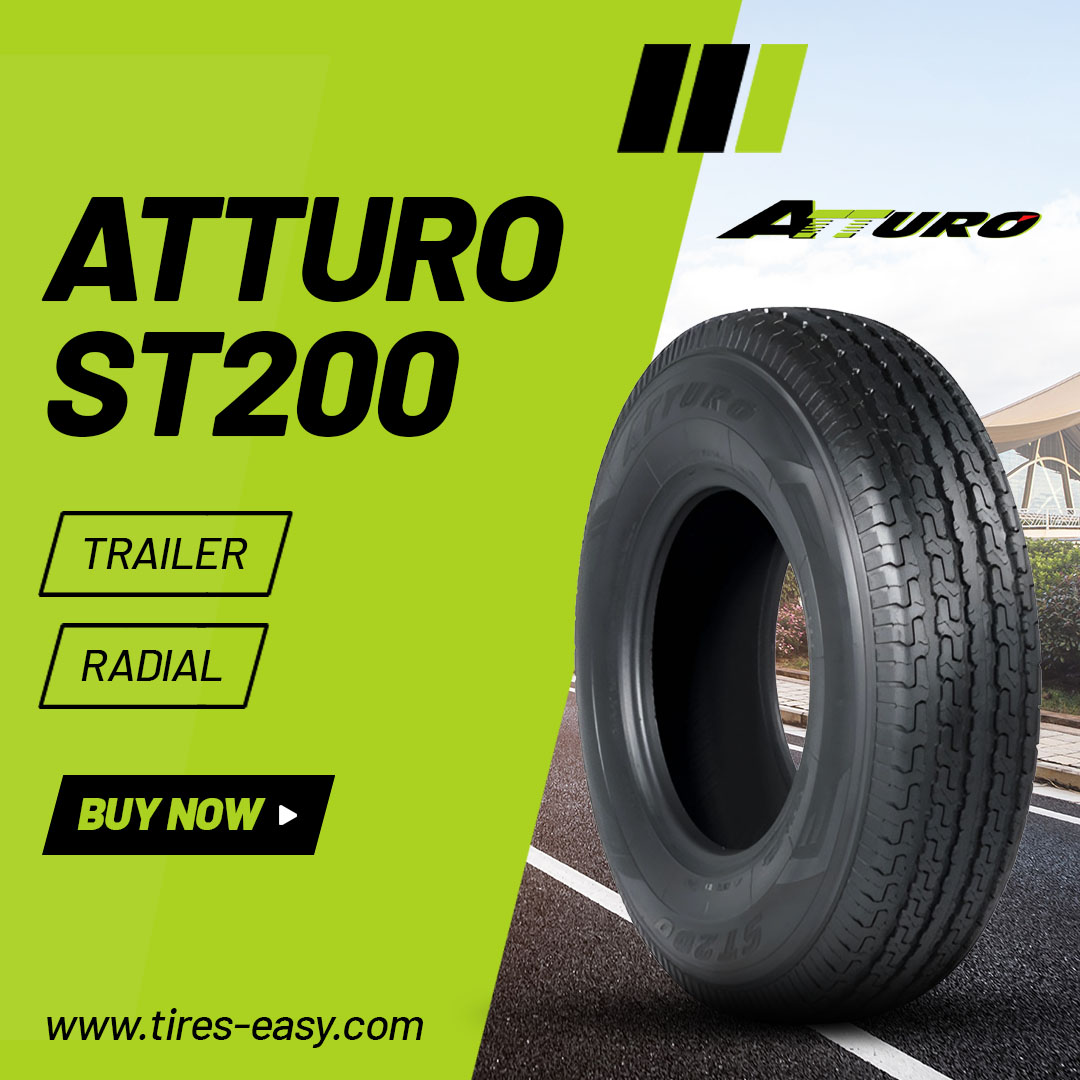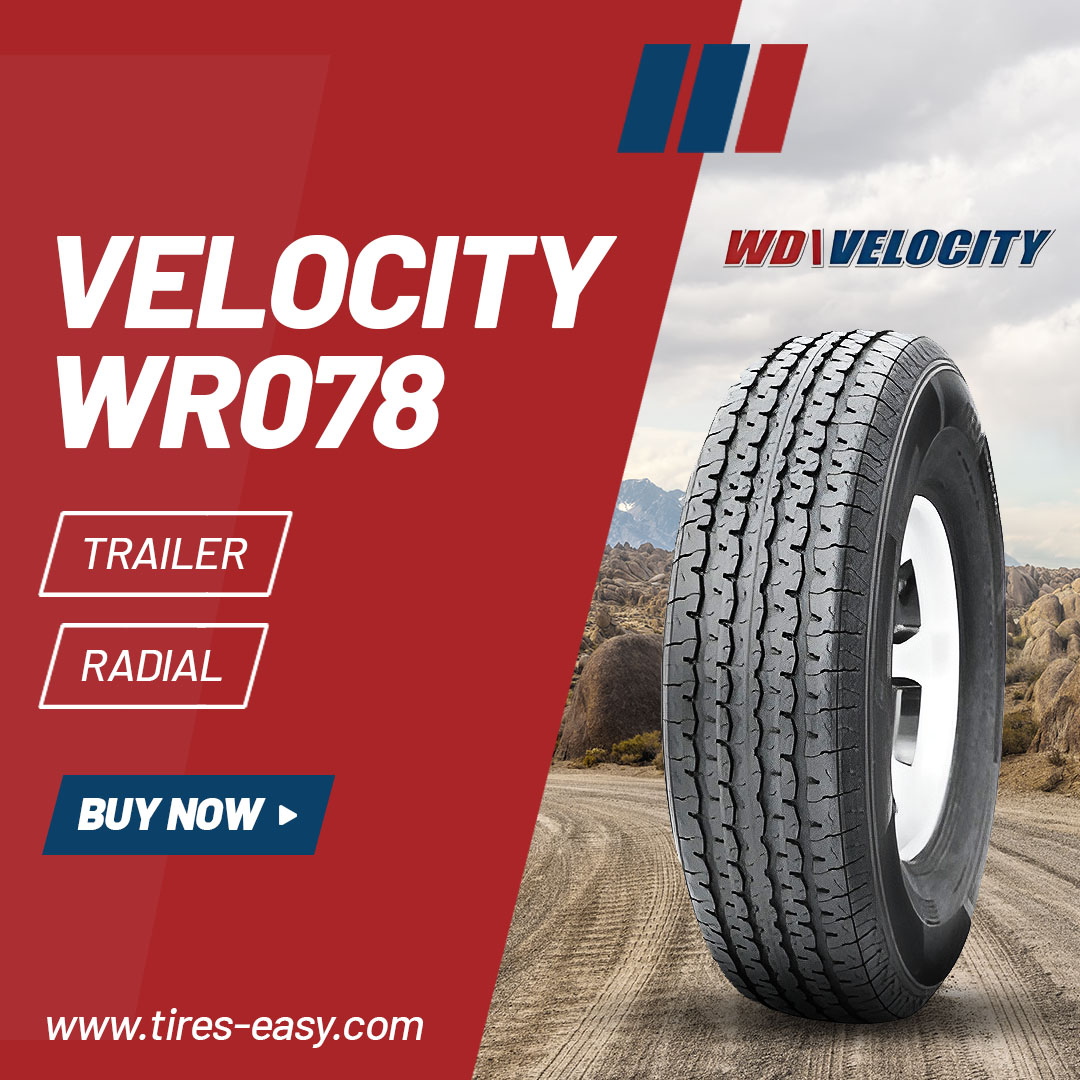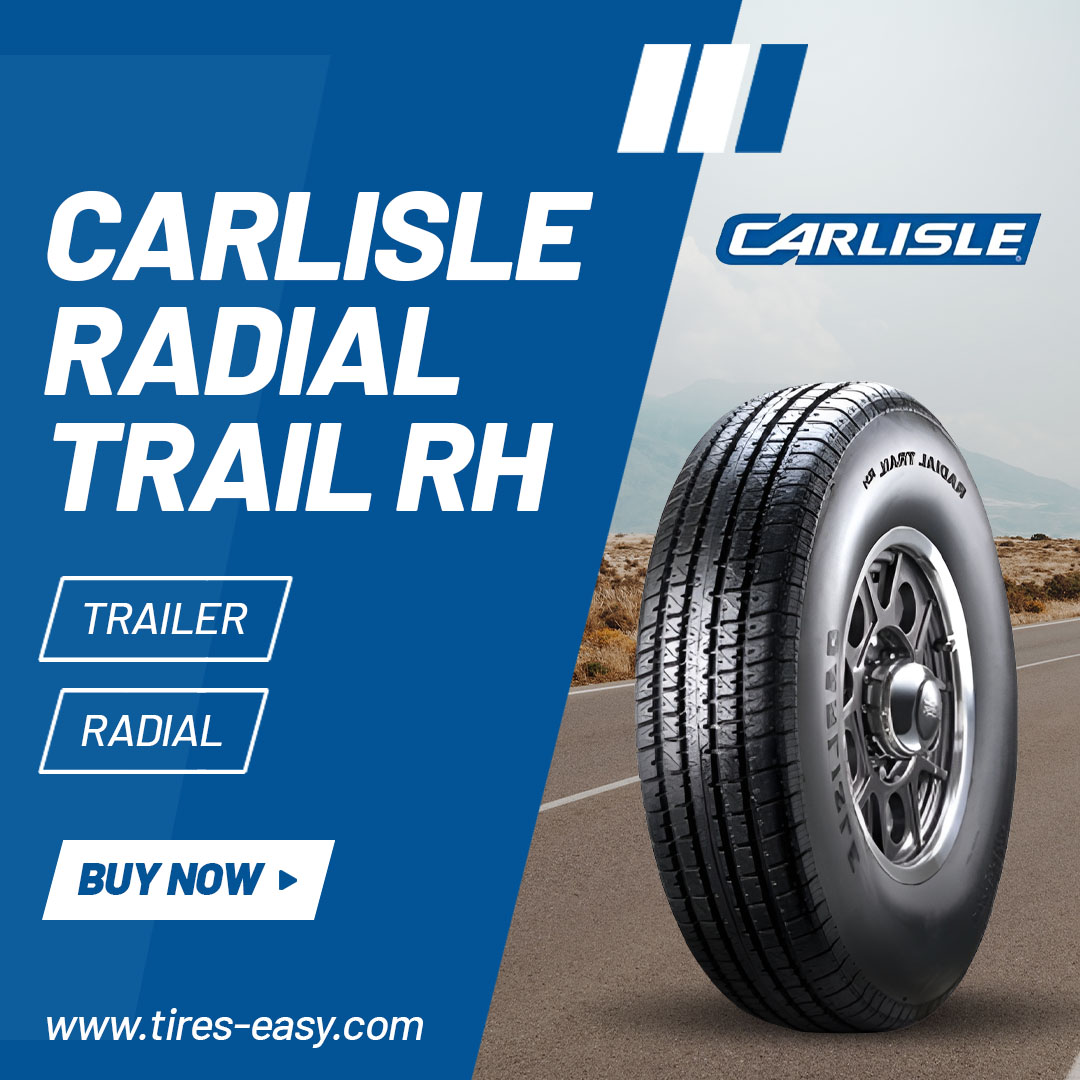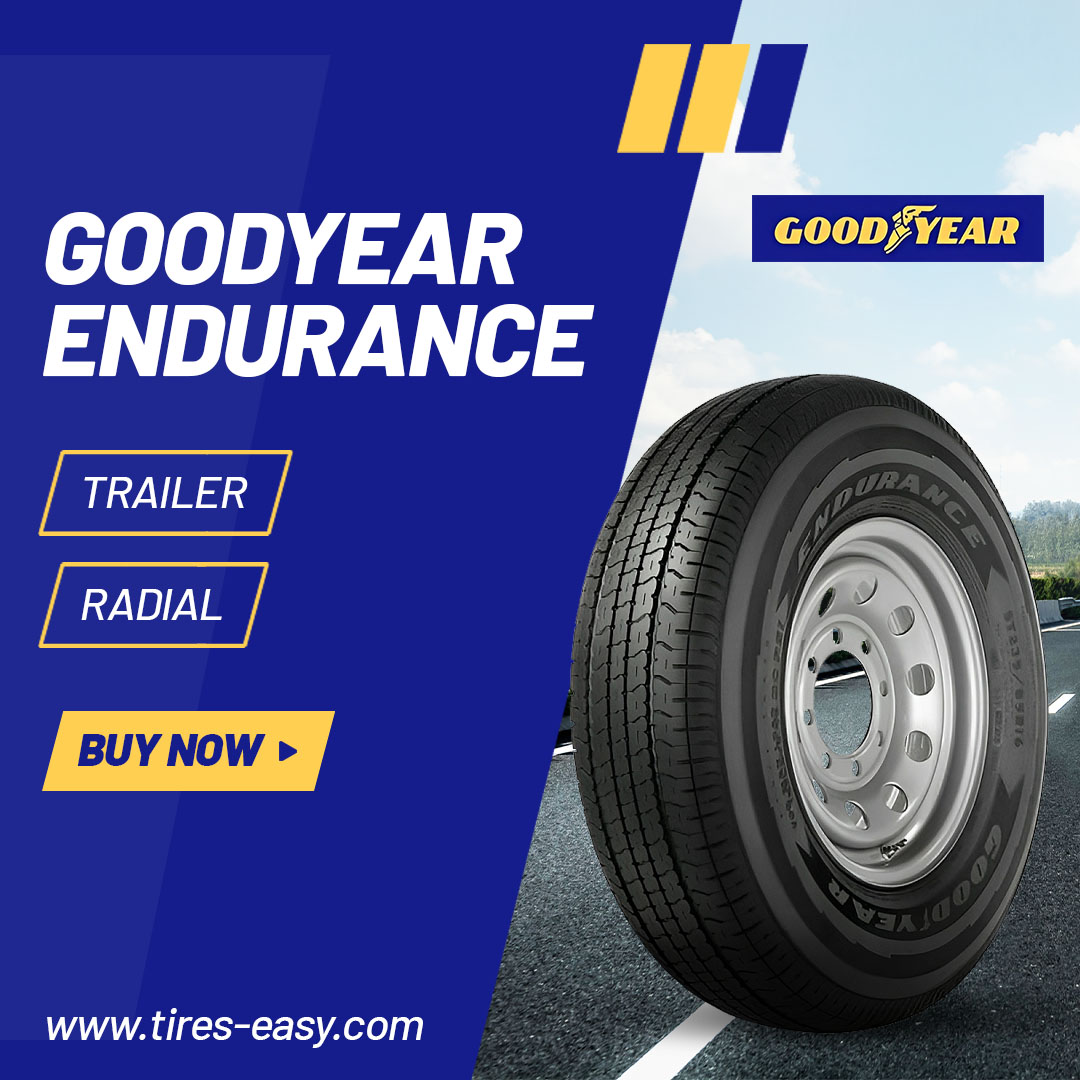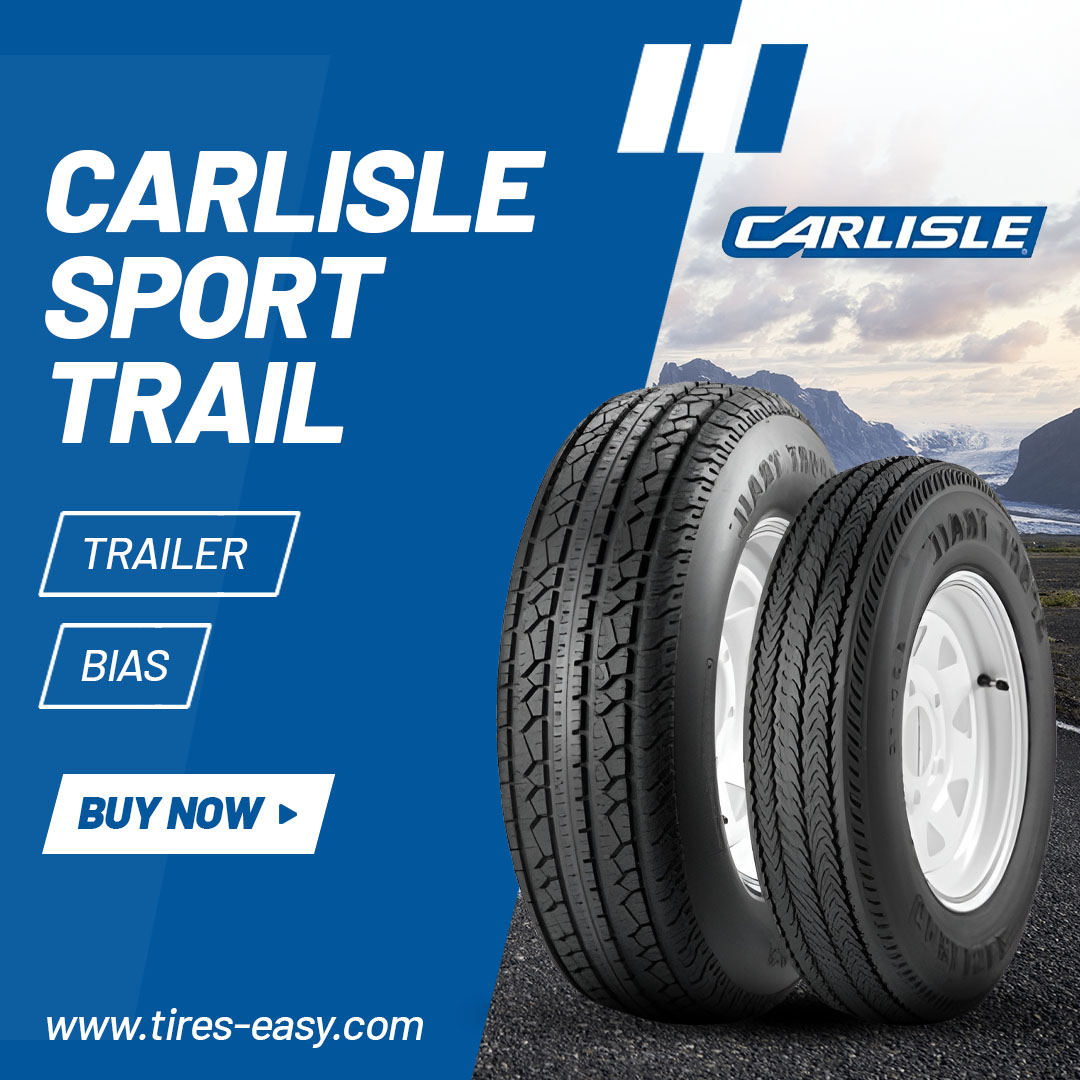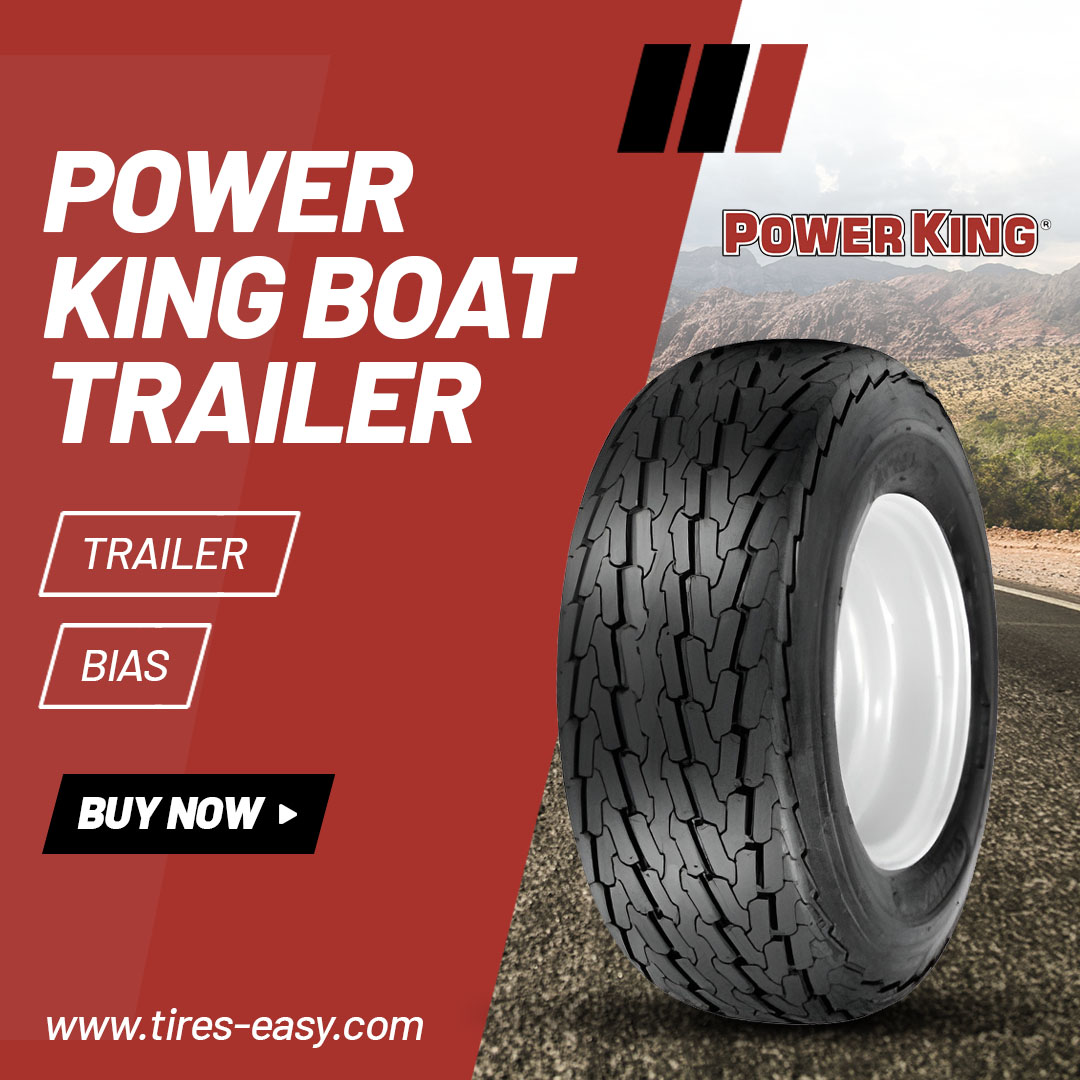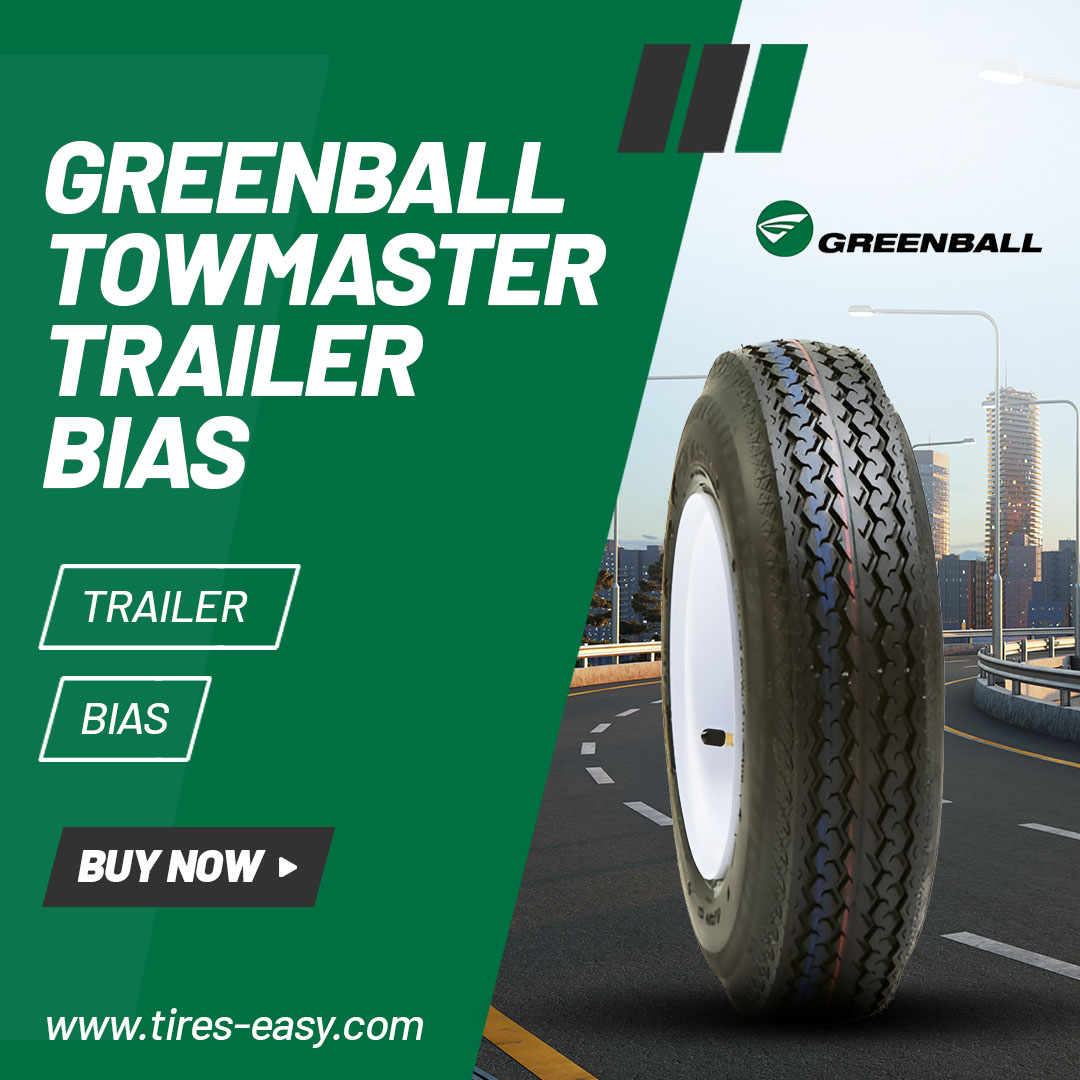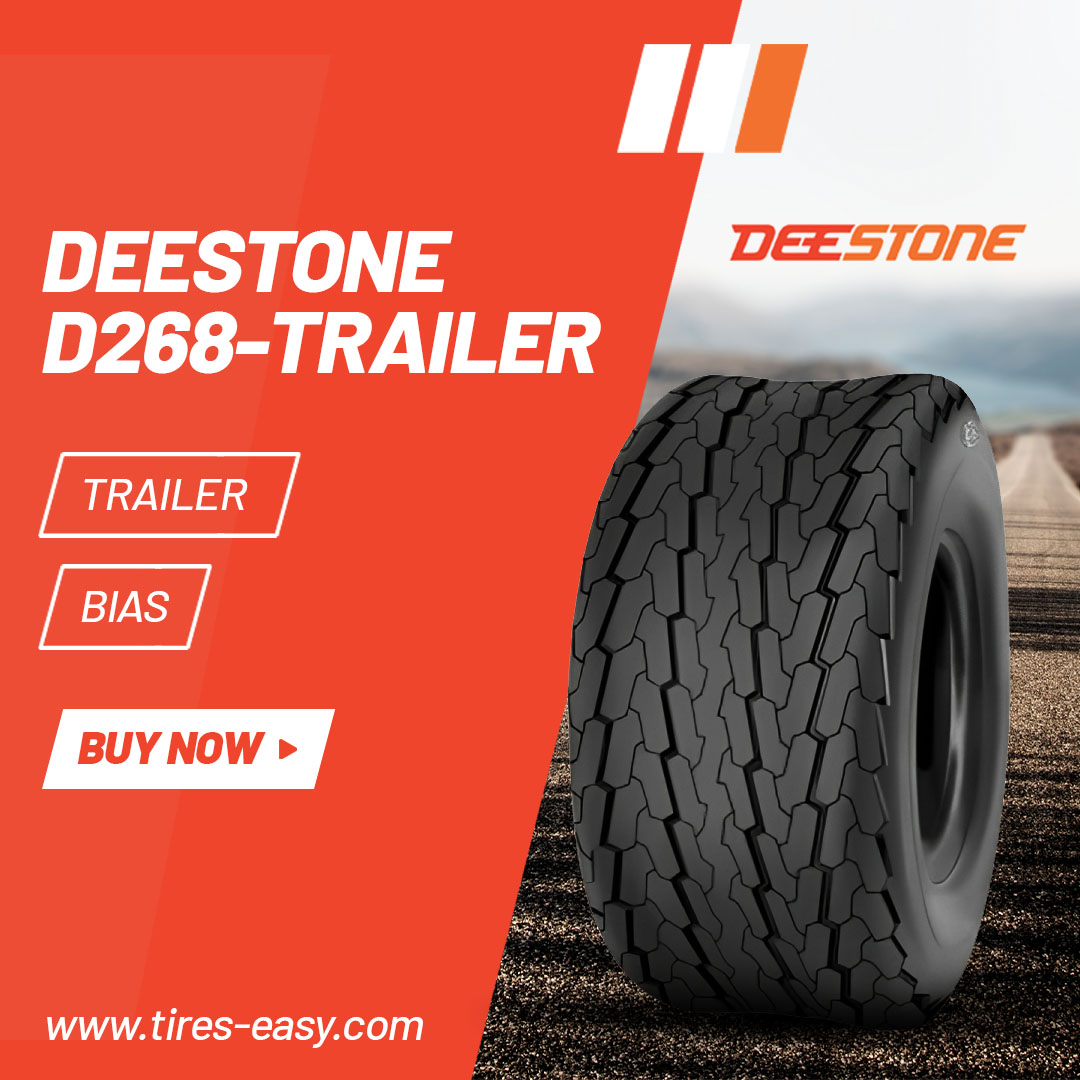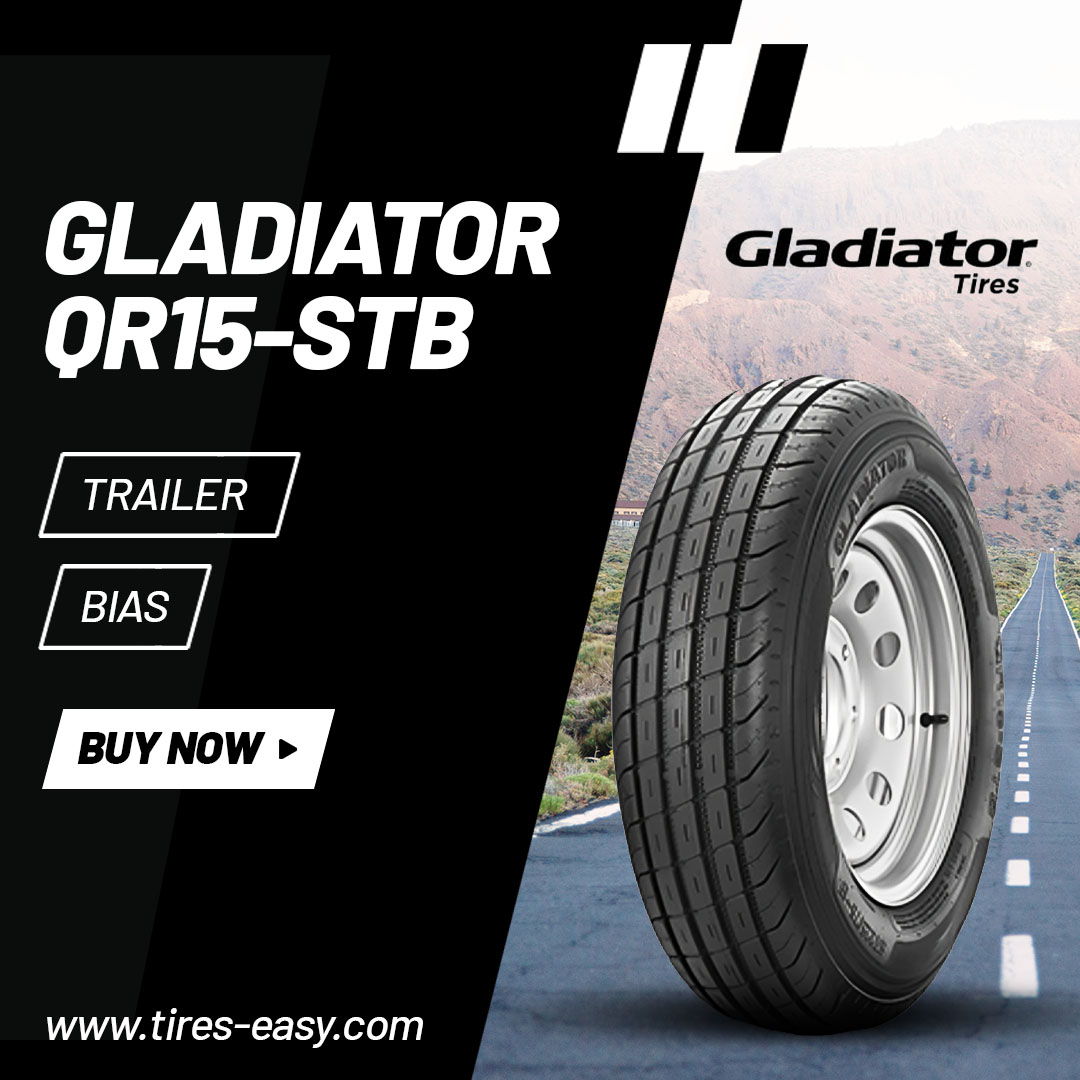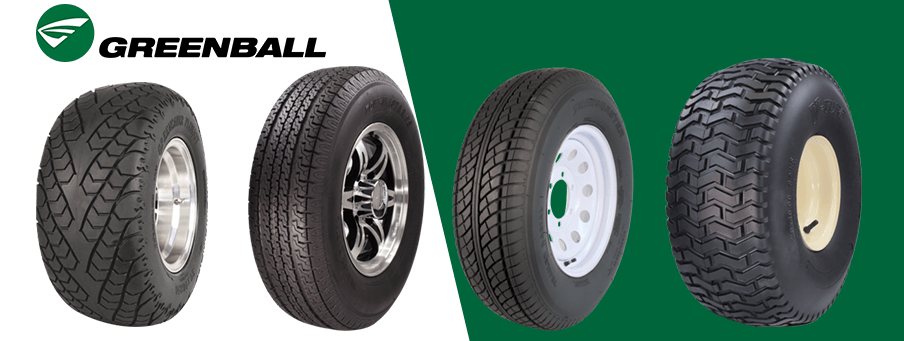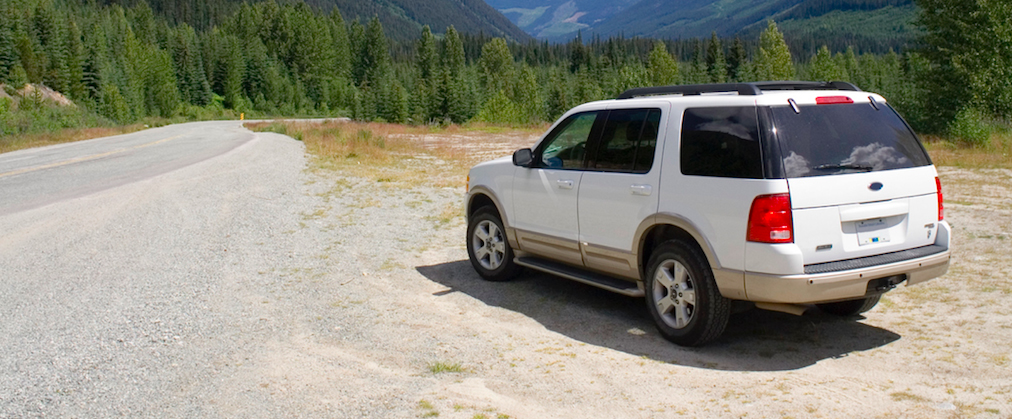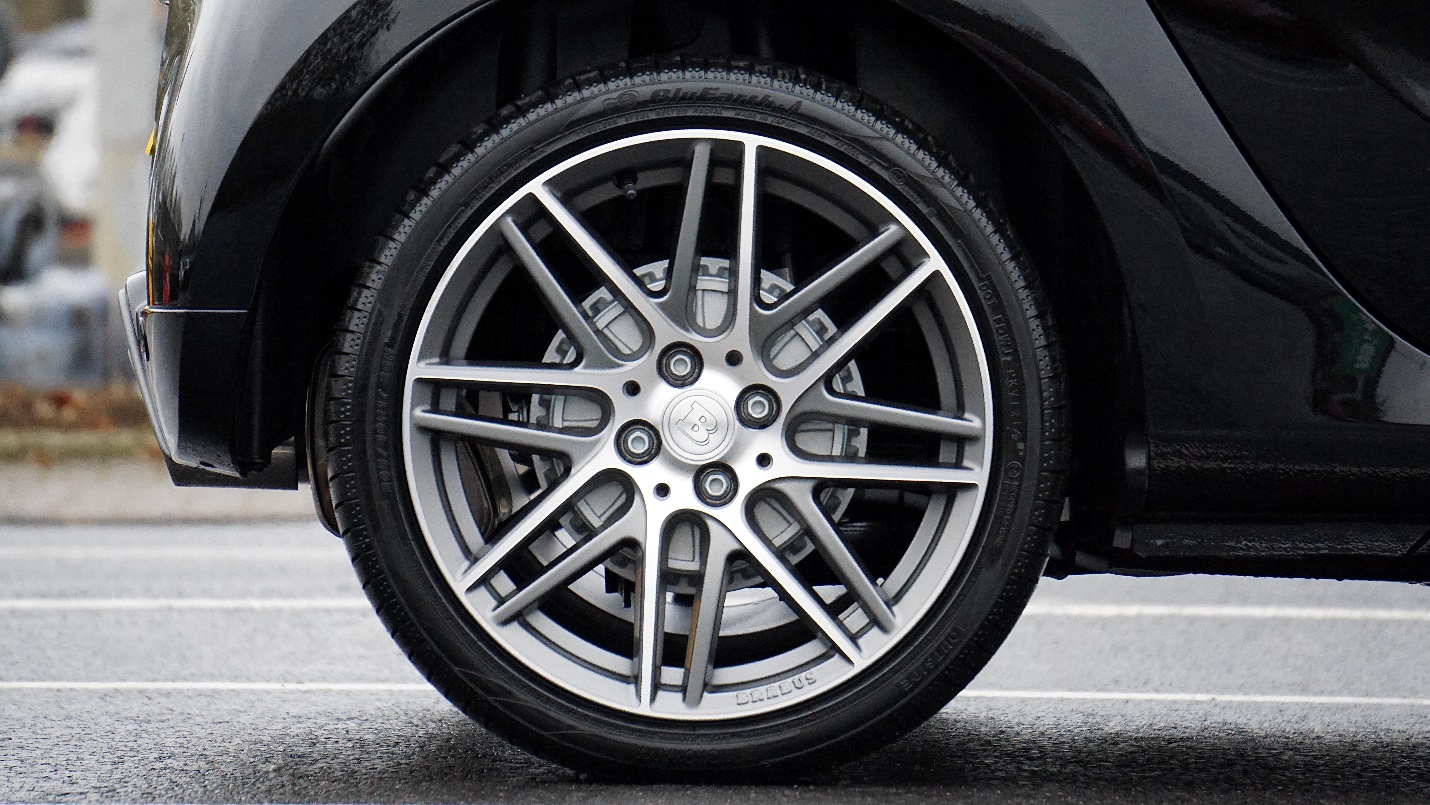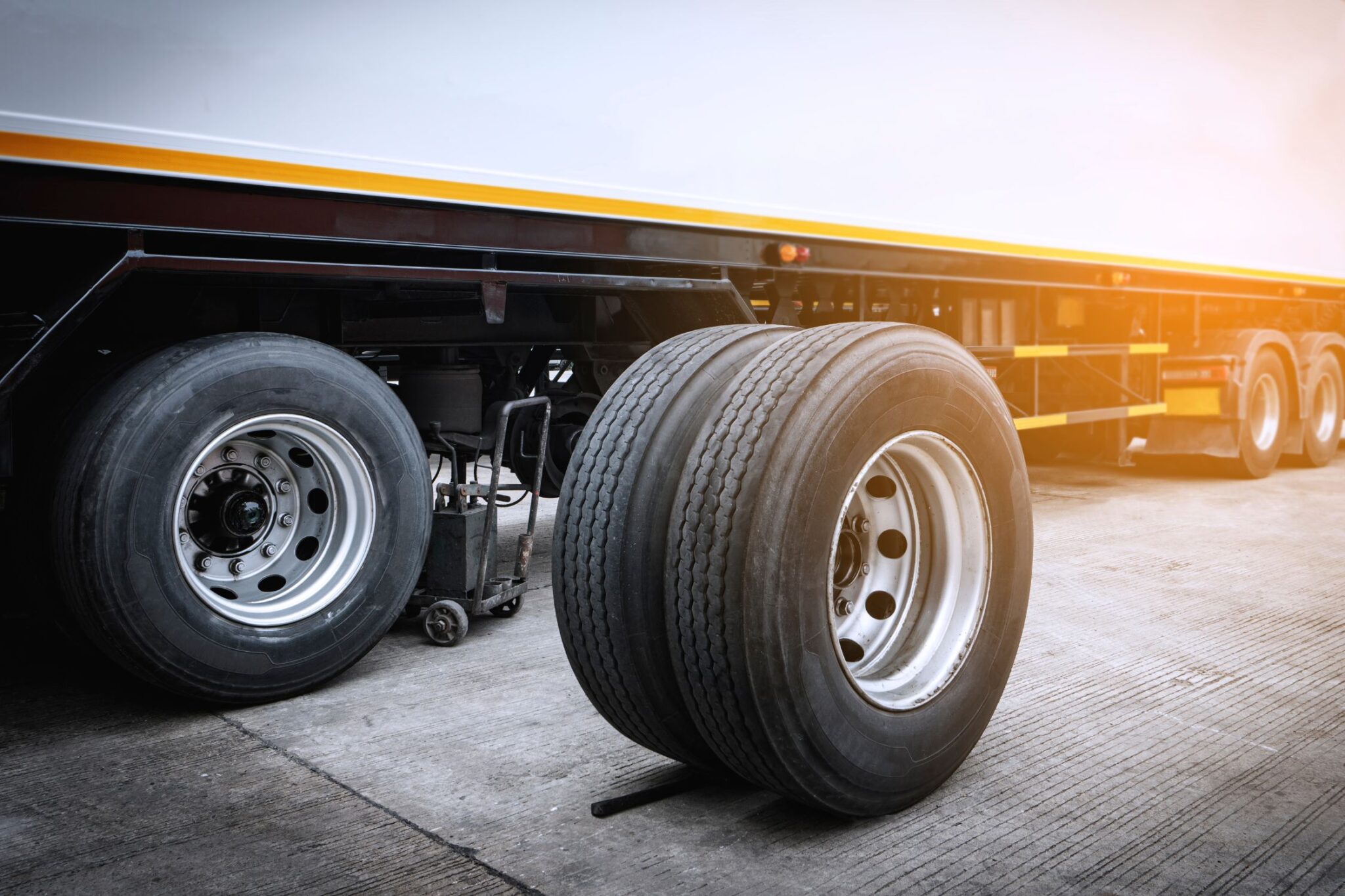Last Updated on February 24, 2024
Unlocking the Secrets to Selecting the Best Trailer Tires
If you like taking your boat out to the lake or pulling your camper behind you on adventures, you want to ensure you have good trailer tires so your trip remains enjoyable. Trailer tires are built differently than car and truck tires and are specifically designed for trailers to minimize sway while maximizing safety. But not all trailer tires are created equal. They generally fall into two categories: radial and bias.
Knowing which ones are best for your needs may require research and reflection.
This buyer’s guide on trailer tires will help you find the correct tire sizes, load rating, price, and style for your trailer so that you (and your cargo) can stay safe on the roads.
Don’t underestimate the importance of trailer-specific tires on your trailer. Using the right trailer tire can reduce fuel consumption roughness, pull on your tow vehicle, and ensure your cargo gets where you desire to be in great shape.
Let’s dive into the nuts and bolts of buying trailer tires without further ado.
What Are Trailer Tires?
Trust us – the difference between regular vehicle tires and trailer tires is significant.
Trailer tires are constructed very differently so they can perform specific duties on the road and fit the needs of trailers, not cars.
When you buy a car/truck tire, it’s built to help you maintain control on turns and handle high speeds on the highway from the seat of your car. Trailer tires are designed for free rolling axles. This means they do not control direction and are intended to follow the tow vehicle freely.
Trailer tires don’t need the same aggressive traction as your car/truck tires. But they must be sturdy enough to carry heavy loads without losing control and resist wear and heat buildup. They must be able to handle the sway of being towed, keeping the load and the trailer behind the tow vehicle, following steadily.
Factors to Consider While Buying Trailer Tires
When it comes to choosing the right trailer tires, there are a few essential things you should keep in mind. Your trailer’s safety and performance depend on it. In this guide, we’ll walk you through the key factors to consider, making your tire-buying journey much more accessible. Let’s get started!
Load Rating
Trailer tires are generally designed to carry more weight than your average vehicle tire. A trailer tire load range indicates how capable the tires are of pulling heavy loads like boats, trailers, campers, livestock, or other cars.
Referring to a trailer tire load range chart can help you determine the correct ply rating for the weight of your trailer.
We’ll get more into ply rating later in this article. But for now, know that your tires will state the maximum load per tire.
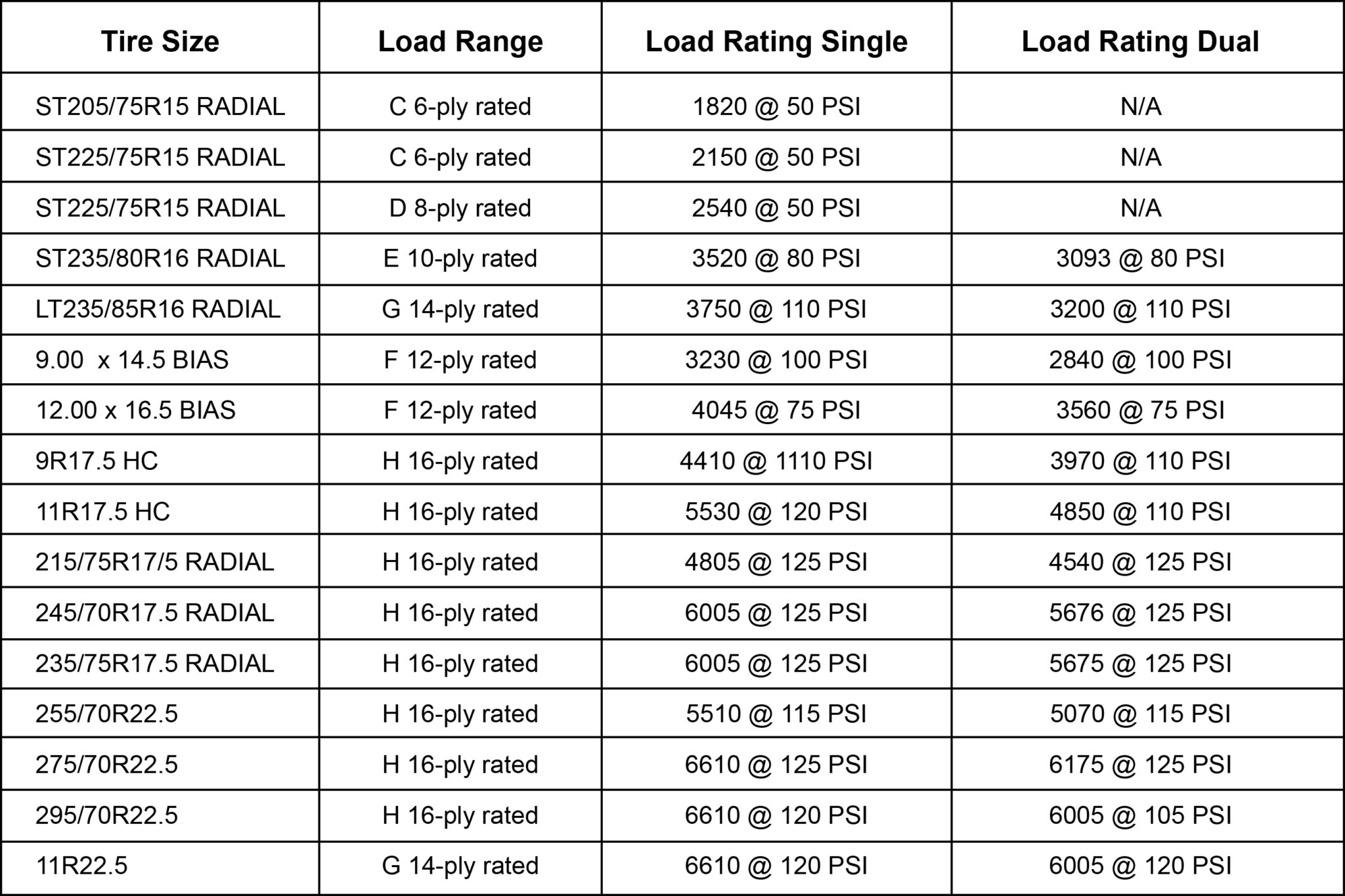
Speed Rating
The trailer tire speed rating is conveyed through a letter code system. A tire rated L can be operated up to 75 mph, while a tire rated M can be used up to 81mph.
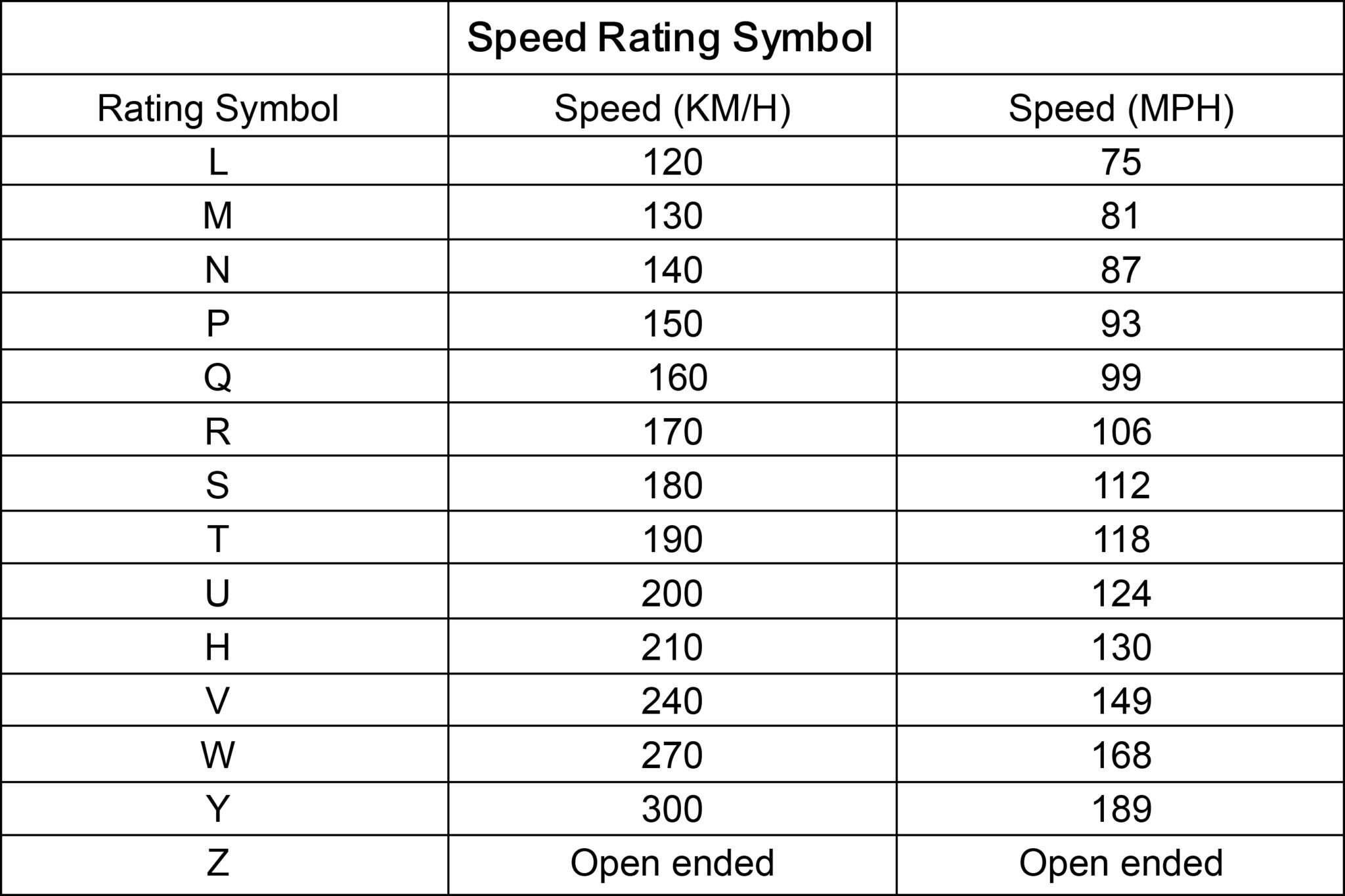
If you can’t find a letter rating on the sidewall of your tire, the best bet is to check with the manufacturer or tire professional to ensure you get the proper speed rating for your intended use.
Construction
If you’ve ever pulled a trailer behind your vehicle, you know that bumps in the road can pose a severe threat. That’s why a trailer tire with shock absorption qualities is essential – your tires will last longer if built to handle rough roads. Also, good trailer tires give you a smoother ride and better protect the cargo in tow.
Generally speaking, trailer tires are built with circumferential grooves and ribbed treads. The tread pattern on trailer tires helps with low rolling resistance to keep the tires rolling freely in the direction the trailer is headed.
Now, the specifics of a trailer tire’s construction also depend on whether it’s a radial or bias-ply tire – we’ll get more into that later.
Size
Trailers come in many different sizes, and there are many tire sizes to fit each specific trailer. Larger tires are typically radial tires meant for higher speeds and longer hauls. Bias ply tires come in a broader range of sizes and can be put on small utility trailers, farm trailers, and boat trailers. It is essential to look at your trailer manufacturer’s manual before changing trailer tire sizes.
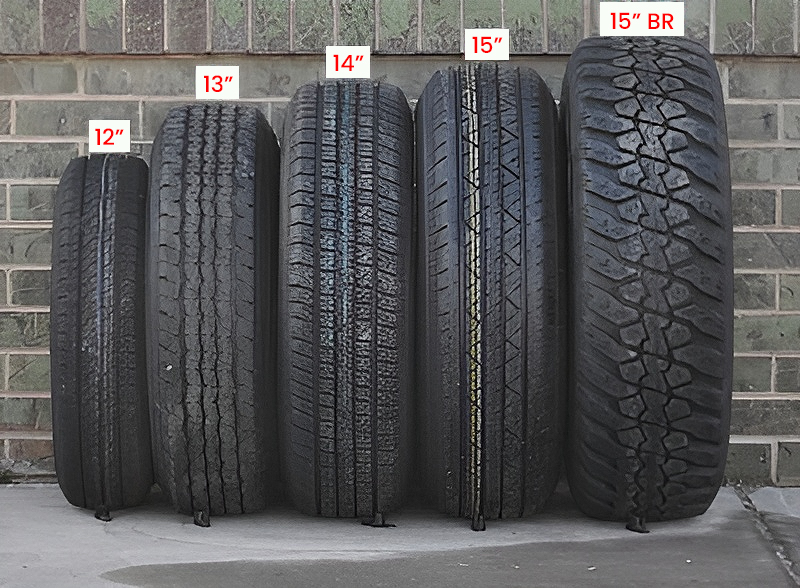
Lifespan
The first thing many shoppers look for when reading trailer tire reviews is the average life expectancy of the product. You want to purchase a tire you can rely on for years.
However, the lifespan of your tire can depend on several aspects.
- How often will you use the tires?
- What kind of surfaces will you drive on?
- How high-quality are the materials?
All of these factors can play a significant role in how long it takes for your tires to show their age and need replacement.
Be sure you’re looking into speed and load ratings to ensure they match the trailer’s specifications. As most trailer tires have a 65mph speed rating – towing at higher speeds creates excessive heat, causing the tire to wear down faster. Regarding load rating, exceeding the range is another way to increase wear – and can easily cause a blowout!
Overall, trailer tires typically lose one-third of their integrity after three years. We strongly recommend replacing trailer tires after five years – no matter how good they might look!
Sidewall
Even when purchasing top-rated trailer tires, looking at the products’ sidewalls is essential. This is where you’ll see indications that clue you into the tire’s specifications, load-bearing capabilities, and whether or not it’s radial or bias ply.
Types of Trailer Tires
Understanding the different trailer tire types is essential for making the best choice for your needs. Trailer tires come in various styles and designs, each with its own set of advantages and disadvantages. In this section, we’ll break down the main types of trailer tires so you can decide when to replace or upgrade your trailer’s wheels. Let’s dive into the world of trailer tire options!
A. Radial Ply
Let’s start by addressing the question, “What is a radial tire?” You may not have heard the term if you’ve never shopped for trailer tires.
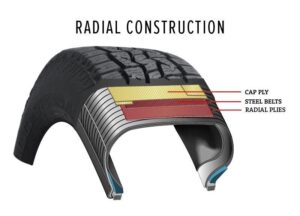
Essentially, radial trailer tires are unique because the plies start at the center and then run “radially” (hence the name) around the tire. This particular 90-degree tread centerline angle provides the tires with excellent grip and improved durability.
When you look at a radial tire, the plies’ particular pattern should be evident. You’ll notice angles that make the tires flexible and thick shoulders that protect the tire and the trailer cargo from shocks. Drivers often compliment radial tires for their smooth ride and superior handling.
*If a buyer is comparing bias-ply vs. radial trailer tires, the most significant benefits they’ll notice with radial tires are the higher levels of protection, better durability, and improved comfort. However, they’ll also see a heftier price tag with these benefits.
You’ll likely want to choose a radial trailer tire if you’re looking for low rolling resistance, stability, long tire lifespans, and better fuel economy. Drivers who often tow large, heavy loads (like campers, livestock, boats, or cargo trailers) typically choose radial due to these factors.
Best Radial Tires
1. Goodyear Marathon Tires
This multi-purpose, practical trailer tire provides superb travel capabilities. Its scientifically designed ribbed tread aims to make your trailer-pulling experience as flawless as possible.
If you’re looking for a smooth ride, this tire’s sidewall makes it extra durable, long-lasting, and steady. It even stands up in challenging circumstances under uneven, rocky ground.
What Kind of Trailer They Should Go On?
The Goodyear Marathon is excellent for drivers embarking on long-haul drives with a trailer in tow or traveling on varied terrains. They are great for travel, horse, cargo, and boat trailers.
- Speed Rating: 65 MPH
- Ratings: The tire has an average review of 5 out of 5 stars.
- Price: Starts at $68/tire.
2. Greenball Tow-Master Special Trailer Radial Tires
This might be the tire for you if you need to pull heavy loads like boats, horse trailers, oversized cargo, or even travel trailers. Its dual steel belts give the tire extra strength and stability, preventing sway as you travel to your destination.
The Greenball Tow-Master can pull a wide range of trailers without compromising fuel efficiency. Surprisingly, it also has a speed rating of M, meaning drivers can pull the trailer at up to 81 mph. This makes it an excellent choice for long trips across the country. The price for the value is just about unbeatable.
What Kind of Trailer They Should Go On?
Horse, boat, travel trailers, or other big cargo loads.
- Speed Rating: 81 MPH
- Ratings: The tire has an average review of 4.5 out of 5 stars.
- Price: Starts at around $48/tire.
3. Atturo ST200 Tires
This radial tire comes in different ply ratings and is typically used by utility (but also recreational) trailers. Its four channels help maintain tractions on wet roads, and the strong center rib is excellent for tracking the tow on a vehicle while on the highway.
Because the Atturo ST200 tire is created to help pull heavy loads carried at a higher center of gravity, it’s an excellent choice for drivers who pull various big cargo products on their trailers. Its speed rating indicates it can go up to 75 mph, allowing it to cover long distances quickly.
What Kind of Trailer They Should Go On?
Heavy cargo and oversized trailers.
- Speed Rating: 75 MPH
- Ratings: The tire has an average review of 4.8 out of 5 stars.
- Price: Starts at around $40/tire.
4. Velocity WR078 Tires
This versatile, long-lasting trailer tire has a rounded profile and an internal structure with twin steel belts. This helps stabilize the tread, giving drivers extra traction and durability.
The Velocity WR078 is excellent for drivers pulling travel trailers, pop-up campers, boat trailers, and even utility trailers. Whether you need to haul your RV or your favorite camping accessories, the tread’s extra rubber protects you from flats on the road and increases your stability.
What Kind of Trailer They Should Go On?
Travel trailers and pop-up campers, boat trailers, and utility trailers.
- Speed Rating: 75 MPH
- Ratings: The tire has an average review of 4.1 out of 5 stars.
- Price: Starts at around $52/tire.
5. Carlisle Radial Trail RH Tires
The variable pitch design of the Carlisle Radial Trail RH tire is designed to give this option better fuel efficiency and minimize extra road noise. It also has unique technology to resist heat buildup, allowing this tire trailer to maintain high integrity and last for many years.
Considered a best-in-class trailer tire, this tire is an excellent choice for those pulling boats, horses, livestock, cargo, or towable RVs.
Fun fact: It was dubbed the official Trailer Tire of the 2012 American Bass Anglers tour.
What Kind of Trailer They Should Go On?
Boat trailers, horse and livestock trailers, or towable RVs.
- Speed Rating: 75 MPH
- Ratings: The tire has an average review of 5 out of 5 stars.
- Price: Starts at around $57/tire.
6. Goodyear Endurance Tires
As an ST/particular purpose trailer tire, this is one option you can always rely on. The internal structure includes twin steel belts with two-ply nylon reinforcement to stabilize the tread and provide extra traction and durability.
The Endurance also features a polyester cord body, giving the trailer that smooth ride many drivers seek. The Goodyear Endurance tires are made to last long and provide less sway.
What Kind of Trailer They Should Go On?
Pop-up campers, boat trailers, toy haulers, fifth wheels, and travel trailers.
- Speed Rating: 87 MPH
- Ratings: The tire has an average review of 5 out of 5 stars.
- Price: Starts at around $118/tire.
B. Bias Ply
Now, let’s talk about bias-ply tires, the counterpart to radial trailer tires. These products are built with nylon belts that run at 30 to 45-degree angles from the center line – rather than 90-degree angles. Bias-ply tires are more prone to flat spotting when parked for long periods. However, they can be stronger than radial tires in some instances due to the numerous ply layers, and they resist sidewall damage better. They also are typically cheaper than radial tires.
The most significant benefit of bias-ply tires is their ability to maintain good traction at slow speeds. This is ideal for pulling a boat in or out of the water or a heavy farm trailer out of a field. Additionally, bias tires typically have thick sidewalls to resist cuts, bruises, and punctures.
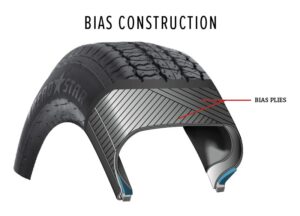
Although they aren’t quite as comfortable as radial tires, they’re more affordable. They are a good option for drivers not towing at highway speeds or long distances.
Generally, buyers use a bias ply tire for a lower price than radial tires. It still provides excellent traction, especially in a straight line, but doesn’t cost an arm and a leg. This makes bias ply tires a common choice amongst people who don’t put a lot of wear and tear on their trailer – they need it for the occasional, straightforward towing session.
Best Bias Ply Tires
1. Carlisle Sport Trail Tires
This tire’s bias-ply construction gives trailers excellent performance capabilities – while still looking like a radial tire. Its wraparound tread provides superb handling, even in harsh weather conditions. The tire even takes corners well, which is difficult for many trailer tires.
The Carlisle Sport Trail tire might be a perfect fit if you’re looking to pull boats, horses, or stock trailers. Some drivers even use this tire to pull utility or construction trailers – the durability allows for both.
What Kind of Trailer They Should Go On?
Construction, livestock, and cargo utility trailers.
- Speed Rating: 81 MPH
- Ratings: The tire has an average review of 5 out of 5 stars.
- Price: Starts at around $25/tire.
2. Power King Boat Trailer II LP Tires
This tire has a traditional sawtooth circumferential rib tread pattern that makes for easy cargo pulling on paved roads. Additionally, the bias-ply casing gives the tires a thicker sidewall, allowing trailers to handle road hazards and potholes with minimal problems.
The Power King Boat Trailer II LP tires are made to pull small to medium-sized trailers. Its durability and ability to handle different roads make it perfect for drivers looking to pull boats on a trailer.
What Kind of Trailer They Should Go On?
Boat trailers and medium-sized trailers.
- Speed Rating: 81 MPH
- Ratings: The tire has an average review of 5 out of 5 stars.
- Price: Starts at around $39/tire.
3. Greenball Towmaster Special Trailer Bias Tires
Greenball Corporation has been known for its high-quality tires for years, and its trailer tires are no exception. This tire’s construction aims to provide a long tread life and exceptional carrying capacity.
They are looking for a trailer tire for pulling boats, ATVs, jet skis, snowmobiles, and camper trailers. The Greenball Tow-Master Special Trailer Bias Tires offer an excellent towing experience at a surprisingly low price. Known for its reliability and high level of performance, this is undoubtedly one of the most popular bias trailer tires on the market.
What Kind of Trailer They Should Go On?
Camping trailers, jet ski, ATV, snowmobile, and boat trailers.
- Speed Rating: 81 MPH
- Ratings: The tire has an average review of 4.7 out of 5 stars.
- Price: Starts at around $21/tire
4. Deestone D268 Trailer Tires
Many car enthusiasts already know about Deestone tires – they’re made to be solid and durable, and most last for years without problems. The Deestone D268 is Deestone’s trailer tire, and it has been constructed to last for a long time while drivers tow heavy loads in various situations.
This high-quality trailer tire features optimum highway patterns and can be used to pull a variety of heavy trailer loads. From work and motorsport trailers to camping trailers, drivers pull many kinds of cargo with this highly reliable tire.
What Kind of Trailer They Should Go On?
Work and utility trailers, camping trailers, and cargo trailers.
- Speed Rating: 62 MPH
- Ratings: The tire has an average review of 4.5 out of 5 stars.
- Price: Starts at around $29/tire.
5. Gladiator QR15-STB Tires
The Gladiator QR15-STB is a unique trailer tire built to carry hefty loads. Its wide-open circumferential grooves help quickly evacuate water and grip the road well, even in moist conditions.
This bias-ply tire’s design allows for excellent heavy-load bearing capabilities and off-road towing in certain circumstances. As a result, many construction companies and farmers choose this trailer tire for their towing.
What Kind of Trailer They Should Go On?
Farm trailers, utility & cargo trailers, and boat trailers.
- Speed Rating: 62 MPH
- Ratings: The tire has an average review of 5 out of 5 stars.
- Price: Starts at around $30/tire.
6. Greenball Towmaster Trailer Bias Tires
This tire is constructed with modern tread designs for a smooth towing experience. Although it comes at an economically friendly price, it can compete with many of the best qualities of other popular trailer tires.
 As a special-purpose trailer tire and for a surprisingly low price, the Greenball Towmaster Trailer Bias Tire provides excellent reliability and a high level of performance, as well as a long life.
As a special-purpose trailer tire and for a surprisingly low price, the Greenball Towmaster Trailer Bias Tire provides excellent reliability and a high level of performance, as well as a long life.
What Kind of Trailer They Should Go On?
Boat and jet ski trailers, utility trailers, small campers, ATV/UT, and snowmobile trailers.
- Speed Rating: 75 MPH
- Ratings: The tire has an average review of 4.9 out of 5 stars.
- Price: Starts at around $18/tire.
Safety Tips
The number one safety tip we can give you is to pick the right tires for your needs. Even the best-rated trailer tires can fail if they aren’t used properly. Get a radial tire if you’re pulling big loads like boats, livestock, campers, or RVs on the highway. A bias is better if you’re mainly towing at low speeds off the pavement.
You need to know how the speed of your travel and the weight of your cargo specifically affect the lifetime of your tire. Be sure to check speed and load ratings and abide by them.
Pay attention to what kind of road conditions, distances, weight, and terrain your trailer tires can feasibly handle. The more you know about driving safely with your tires, the better.
Other tips for staying safe while pulling an item with trailer tires:
- Always inflate the trailer tires to the correct inflation indicated by the trailer specs.
- Avoid going over the tire’s maximum speed rating.
- Understand that the load-bearing capabilities will decrease at higher speeds.
- Replace your tires every five years
- Store your trailer tires in cool, dark areas at maximum inflation
- Consider using covers to protect the tires from sunlight when not being used
Conclusion
Picking the correct type of tire for both your vehicle and your trailer is extremely important when it comes to staying safe on the roads. You need the proper construction behind your trailer tires to safely get you from point A to point B – without putting extra wear and tear on your vehicle or the item you’re pulling.
For any further questions on trailer tires, please contact our team at Tires Easy. We’ll help you find the perfect tires for your trailer and ensure you feel confident in your buying decision.
FAQs
Are trailer tires rated for highway use?
What many don’t realize is that speed is hugely important when it comes to driving with trailer tires. Unless noted otherwise, your trailer tires should not exceed 65 miles per hour, making moving on the highway challenging.
Your trailer tires should never be used at speeds greater than 80 mph.
How often should I change my trailer tires?
You can’t always tell how worn a trailer tire is just from its appearance. We recommend replacing them after five years to ensure they’re in good shape. This is typically when you reach 10K and 12K in mileage. Changing a tire with excessive cracking and ozone damage would be best.
Can I change my tires from bias ply to radial or vice versa?
It’s not typical to switch back and forth. If your towing needs change drastically, you may want to change tire types. Always consult your trailer manual to ensure you use the proper type of trailer tire.
What is the load range on a trailer tire?
The load range rating on your tire’s sidewall will indicate how much weight the tire is designed to carry. In some cases, you might have heard these ratings referred to as “ply ratings,” the older term for indicating the strength of a tire. The higher the ply number, the heavier-duty the tire.
You should always check the load range in your tire’s description to ensure it can be towed on your trailer.
Should I use bias ply or radial trailer tires?
There isn’t necessarily a black-and-white answer to this question. It depends on what you need from a trailer tire, what you plan to pull, and how much you can afford to spend.
Typically, bias-ply tires are less expensive than radial tires, which makes some drivers more likely to buy those than radial options. It would be best if you were sure you know what your driving situation is. If you will be towing on the highway, definitely use a radial tire. Use bias if you mainly pull at low speeds or off the beaten path.
However, if you’re pulling precious cargo that weighs a lot, radial tires perform better on a noticeable level. You’ll experience a smoother ride and less sway; they last longer.
As a shopper, you must pay the most attention to the load-bearing capabilities of the tires you evaluate. Radial tires are usually built to take on heavier loads and, therefore, can be more expensive. You’ll need to determine precisely what you must purchase cargo safely (and comfortably).
How can I protect my trailer tires from dry rot?
As with most products, natural degradation is just a reality of life. Overexposure to environmental conditions can compromise the rubber compounds in your tire.
Dry rot is caused by weather. Your trailer tire can become damaged by excessive UV rays from the sun and freezing temperatures. Exposure to high ozone concentrations, climate changes, and general misuse can significantly contribute to dry rot. To reduce the weathering of the trailer tires’ sidewalls, try to avoid the following:
- Staying parked in one position for long periods.
- Low inflation pressure
- Storing tires at extremely high temperatures
- It is stored near electric motors, battery chargers, generators, welding equipment, or any other item that creates ozone.
Why do my trailer tires keep blowing out?
Trailer tires often blow when they have experienced too much heat on the road due to a lack of inflation. Make sure you’re maintaining good air pressure in your tires. Additionally, you should always ensure you’re not overloading the tire or surpassing the speed rating, which can lead to blowouts.
How can I tell if a tire is radial or biased?
The easiest way to tell if a tire is radial is to look for the R on the tire sidewall in the tire size, indicating it is a radial tire. A bias ply tire will be marked with either a dash (-) or a D in the tire size where the R was on the radial tire. Also, both tires will have the whole word radial or bias ply written on the sidewall.
Should I rotate my trailer tires?
Trailer tires wear evenly, meaning they do not typically need to be rotated. If your trailer tires are NOT wearing evenly, you are likely experiencing an issue with your trailer – and it should be inspected.



